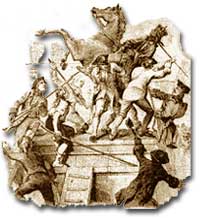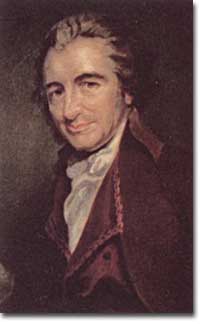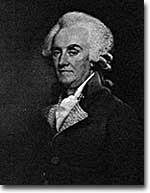How Much Makeup Did The Early Colonies Of America Ware

11b. Loyalists, Contend-sitters, and Patriots

Later on patriots tore down the statue of King George Three in New York Urban center on July ix, 1776, they melted parts of it downwardly and made bullets to apply against the British.
It is impossible to know the exact number of American colonists who favored or opposed independence.
For years it was widely believed that one third favored the Revolution, ane third opposed information technology, and one third were undecided. This stems from an estimate made past John Adams in his personal writings in 1815.
Historians have since concluded that Adams was referring to American attitudes toward the French Revolution, not ours. The electric current idea is that about twenty percent of the colonists were Loyalists — those whose remained loyal to England and King George. Another small group in terms of percent were the dedicated patriots, for whom there was no culling only independence.

On the Fence
Often overlooked are the fence-sitters who made up the largest group.
With and then many Americans undecided, the war became in great measure out a battle to win pop back up. If the patriots could succeed in selling their ideas of revolution to the public, so popular support might follow and the British would be doomed.

In "Common Sense," Thomas Paine argued for independence from United kingdom and the creation of a democratic commonwealth. Its publication in January 1776 immediately added fuel to the patriots' cause.
Even with military machine victory, it would accept been impossible for the Crown to regain the allegiance of the people. Revolution would merely flare up at a later date.
The British understood the need to attract American popular support for the parent country, likewise. Some colonists who were not persuaded by the political struggle joined the British for personal proceeds or armed forces glory. Some joined out of sheer loyalty to the Crown — they still believed themselves loyal British citizens. There were also many American farmers willing to sell their appurtenances to the British for turn a profit.
In the long run, withal, the patriots were much more successful attracting support. American patriots won the state of war of propaganda. Committees of Correspondence persuaded many fence-sitters to join the patriot crusade. Writings such every bit Thomas Paine'southward "Mutual Sense" stirred newfound American nationalism.
| | ||
| | Extract of "Mutual Sense" IN the following pages I offer nothing more than unproblematic facts, plain arguments, and mutual sense: and have no other preliminaries to settle with the reader, than that he volition divest himself of prejudice and prepossession, and endure his reason and his feelings to decide for themselves that he volition put on, or rather that he will not put off, the true character of a human, and generously overstate his views beyond the present day ... The Sun never shined on a crusade of greater worth. 'Tis not the affair of a Urban center, a Canton, a Province, or a Kingdom; but of a Continent — of at to the lowest degree one-eighth part of the habitable Earth. 'Tis not the business organization of a 24-hour interval, a year, or an age; posterity are virtually involved in the contest, and will be more or less affected even to the end of time, past the proceedings now. Now is the seed-time of Continental marriage, faith and laurels. The to the lowest degree fracture now will be like a name engraved with the point of a pin on the tender rind of a young oak; the wound would enlarge with the tree, and posterity read in information technology full grown characters. – Thomas Paine, "Common Sense" (1776) | |
| | ||

The American Revolution not just separated neighbors and friends, it devastated many families, including the Franklins. William Franklin, pictured hither, a Loyalist, rarely, if e'er, spoke to his Patriot male parent Ben after the war.
Patriots subjected Loyalists to public humiliation and violence. Many Loyalists found their property vandalized, looted, and burned. The patriots controlled public discourse. Woe to the denizen who publicly proclaimed sympathy to Great britain.
Families were sometimes divided over the revolution. Benjamin Franklin'southward son, William, a Loyalist governor of New Jersey, supported the British effort during the war.
What Happened to the Loyalists?
In the cease, many Loyalists only left America. Most 80,000 of them fled to Canada or United kingdom during or just later the war. Because Loyalists were often wealthy, educated, older, and Anglican, the American social fabric was altered past their departure. American history brands them equally traitors. But most were merely trying to maintain the lifestyles to which they had go accustomed. Later on all, history is always written by the winners.
![]()
If yous like our content, delight share it on social media!

![]()
Source: https://www.ushistory.org/us/11b.asp
Posted by: wyattparge1941.blogspot.com

0 Response to "How Much Makeup Did The Early Colonies Of America Ware"
Post a Comment